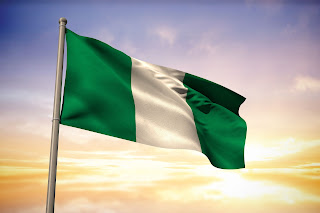Nigerian Economic Challenges with Bad Policies: Actionable Tips and Advice for Nigerians
Nigeria is a country with a rich history and culture, and a vast amount of natural resources. However, the country also faces a number of economic challenges, including bad policies.
One of the biggest economic challenges facing Nigeria is corruption. Corruption is widespread in all levels of government and society, and it siphons off billions of dollars each year that could be used to invest in the economy and improve the lives of Nigerians.
Another major economic challenge is the lack of infrastructure. Nigeria has a poor road network, unreliable power supply, and inadequate water and sanitation facilities. This makes it difficult for businesses to operate and for Nigerians to get around.
The government's economic policies have also been criticized for being harmful to the economy. For example, the government's import restrictions have made it more expensive for businesses to import goods, and have led to higher prices for consumers.
The abolished government's fuel subsidy program has also been criticized for being wasteful and inefficient. The program costs the government billions of dollars each year, and it has been accused of benefiting the wealthy at the expense of the poor.
Despite the challenges facing the Nigerian economy, there are a number of things that Nigerians can do to improve their own financial situation. Here are a few tips:
Invest in yourself: One of the best investments you can make is in your own education and skills. This will make you more competitive in the job market and allow you to earn a higher income.
Start a business: If you have a business idea, don't be afraid to start your own business. Nigeria is a country with a growing population and a rising middle class, so there is a lot of potential for entrepreneurs.
Save and invest: It is important to save and invest regularly, even if it is just a small amount. This will help you to build a financial cushion for the future and to achieve your financial goals.
Here are a few real-life examples and case studies to support the points made above:
Corruption: In 2021, Nigeria was ranked 154th out of 180 countries on Transparency International's Corruption Perception Index. This means that Nigeria is one of the most corrupt countries in the world.
Lack of infrastructure: A 2022 report by the World Bank found that Nigeria has the worst road network in the world. The report also found that Nigeria has the second-worst power supply in the world.
Harmful economic policies: In 2021, the World Bank warned that Nigeria's import restrictions were harming the economy. The World Bank also warned that Nigeria's fuel subsidy program was unsustainable.
Investing in yourself: A 2022 study by the National Bureau of Statistics found that Nigerians with a tertiary education earn on average twice as much as Nigerians with a secondary education.
Starting a business: A 2021 report by the Small and Medium Enterprise Development Agency of Nigeria found that there are over 41 million small and medium-sized enterprises in Nigeria. These businesses employ over 80% of the Nigerian workforce and contribute over 50% of the country's GDP.
Saving and investing: A 2022 study by the Securities and Exchange Commission found that the number of Nigerians investing in the stock market increased by 20% in 2021.
If you are a Nigerian living in Nigeria, I encourage you to follow the tips and advice above to improve your own financial situation. Despite the challenges facing the Nigerian economy, there are still opportunities for Nigerians to succeed.

.png)





Comments
Post a Comment